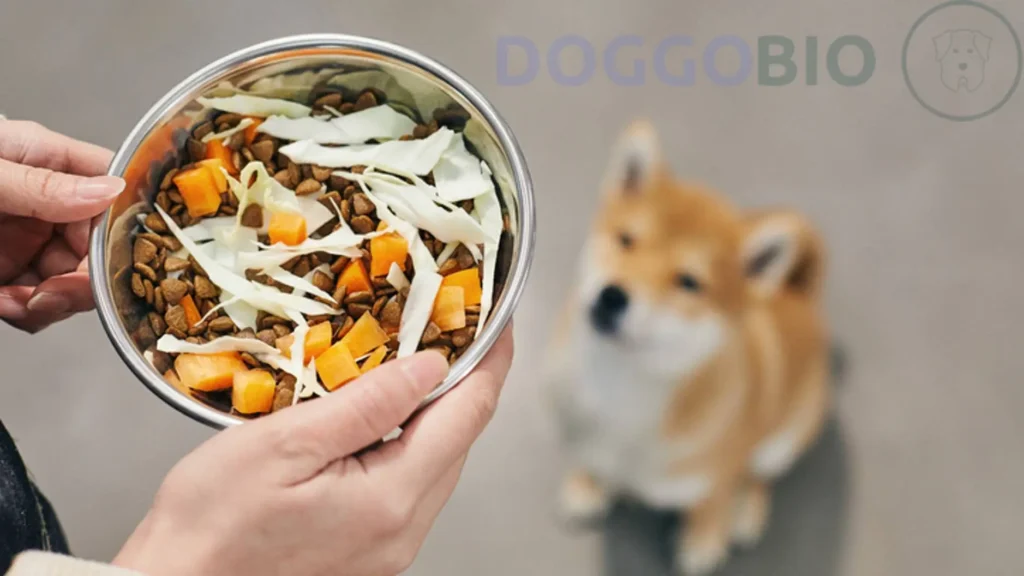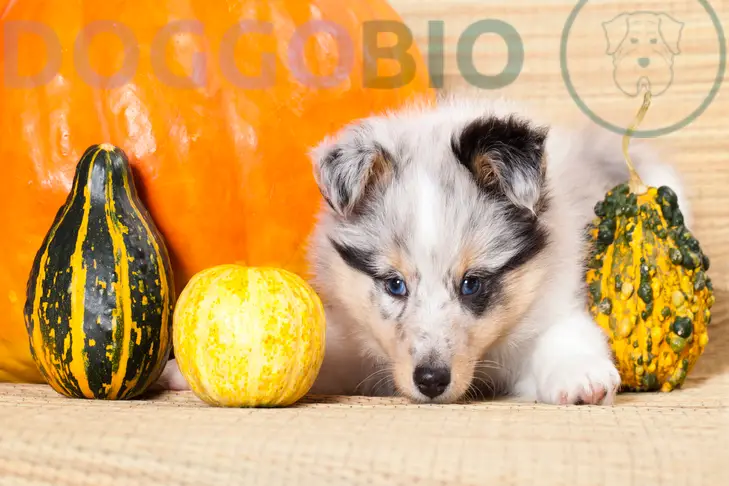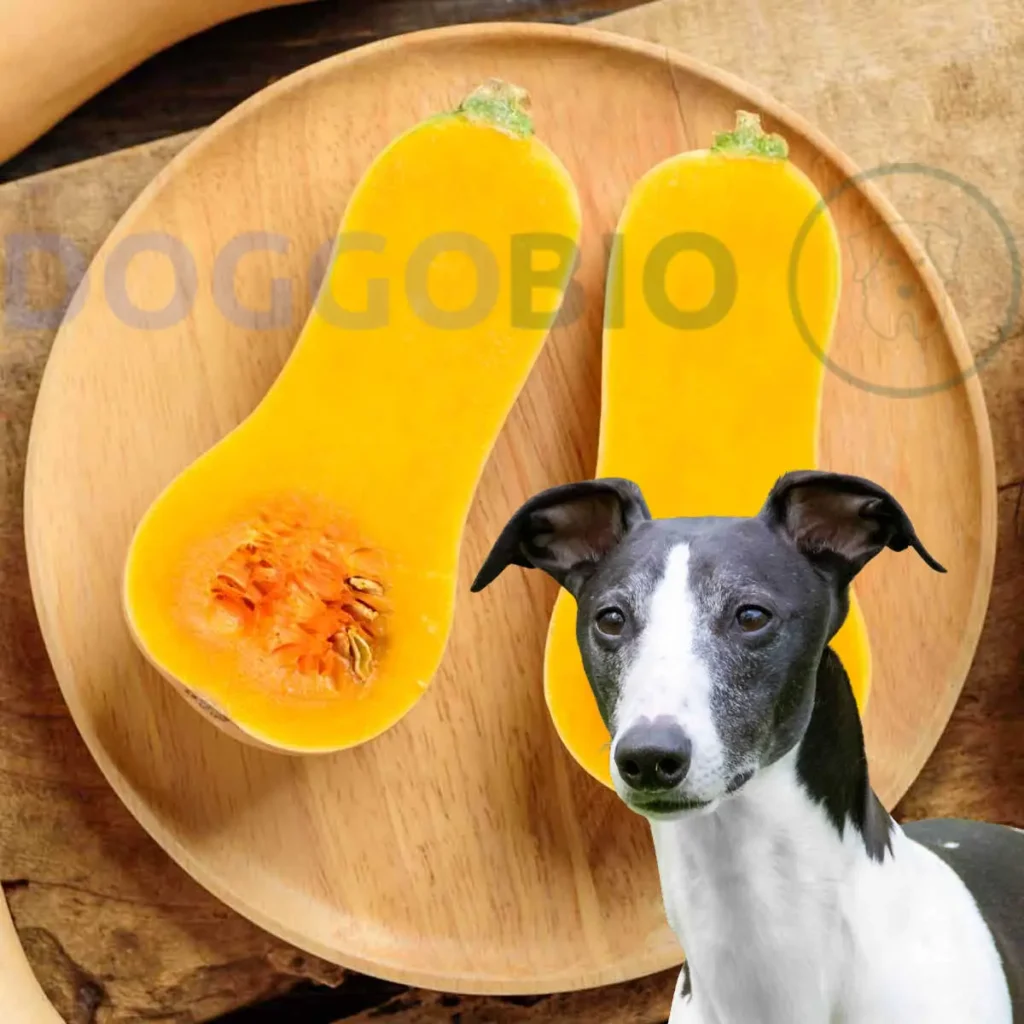When it comes to our beloved canine companions, their health and nutrition are of utmost importance. We often question whether certain human foods can be safely incorporated into our dog’s diet.
Butternut squash is one such food that may pique the curiosity of dog owners seeking to diversify their pet’s menu. So, can dogs eat butternut squash? The answer is a resounding YES with some critical caveats and considerations.
In this article, we will explore the benefits and potential risks of feeding butternut squash to dogs, helping you make informed choices about your furry friend’s diet.
Can Dogs Eat Butternut Squash?
Yes, dogs can safely consume butternut squash. This fruit is safe and packed with nutrients beneficial for dogs. However, the way it’s prepared and served is crucial. Butternut squash should be cooked without harmful additives like salt, sugar, or spices. The skin and seeds must be removed to prevent choking hazards or digestive issues.
When given in moderation and prepared correctly, butternut squash can be a healthy addition to your dog’s diet.
Nutritional Benefits of Butternut Squash for Dogs
Butternut squash is a winter squash rich in vitamins, minerals, and antioxidants. It is low in calories and fiber, making it a great addition to any dog’s diet. Here are some of the critical nutrients found in butternut squash and their potential benefits for dogs:

1.Vitamins
Butternut squash is a good source of vitamins A, C, and E, essential for a dog’s overall health and well-being.
- Vitamin A is vital for maintaining healthy skin, coat, and vision.
- Meanwhile, vitamin C helps boost the immune system and fight off infections.
- Vitamin E is a powerful antioxidant that can help protect cells from damage caused by free radicals.
2.Minerals
Butternut squash is also rich in minerals vital for a dog’s health. These include potassium, magnesium, and manganese.
- Potassium is essential for maintaining proper nerve and muscle function.
- While magnesium helps regulate blood pressure and supports bone health.
- Manganese plays a role in metabolism and helps maintain healthy bones and cartilage.
3.Antioxidants
Butternut squash contains high levels of beta-carotene, an antioxidant that gives it its vibrant orange color.
Beta-carotene is converted into vitamin A in the body and helps protect cells from damage caused by free radicals. It also has anti-inflammatory properties, benefiting dogs with joint issues or other inflammatory conditions.
Potential Risks of Feeding Butternut Squash to Dogs
While butternut squash is generally safe for dogs to eat, there are a few things to remember before adding it to your dog’s diet. Here are some potential risks to consider:

1.Allergies
As with any new food, there is always a risk that your dog may be allergic to butternut squash. If your dog experiences adverse reactions after eating butternut squash, such as itching, vomiting, or diarrhea, stop feeding it immediately and consult your veterinarian.
2.Digestive Issues
Butternut squash is high in fiber, which can benefit dogs with digestive issues. However, too much fiber can cause stomach upset, gas, or bloating in some dogs. Introducing butternut squash slowly into your dog’s diet and monitoring their reaction to it is essential.
3.Seeds and Skin
Butternut squash seeds and skin can be complicated for dogs to digest and may cause gastrointestinal blockages. Removing the seeds and skin before feeding butternut squash to your dog is best.
How Do You Safe Feed Butternut Squash To Dogs?
If you have decided to add butternut squash to your dog’s diet, here are some tips to ensure that they are getting the most out of this nutritious vegetable:

1.Cooked vs. Raw
While both cooked and raw butternut squash are safe for dogs to eat, cooking can make it easier for them to digest and absorb nutrients. You can steam, boil, or bake butternut squash and then mash or puree it before feeding it to your dog.
2.Portion Size
As with any new food, it is essential to introduce butternut squash slowly into your dog’s diet. Start with a small amount and gradually increase the portion size over a few days. This will give your dog’s digestive system time to adjust to the new food.
3.Serving Suggestions
Butternut squash can be served as a standalone treat or mixed with your dog’s regular food. You can also use it as a healthy alternative to store-bought treats by making m dog treats. Just avoid adding any seasonings or spices that may harm dogs.
How Much Butternut Squash Do You Give To Your Dog?
Determining the right amount of butternut squash for your dog depends on their size and dietary needs. Generally, treats should not make up more than 10% of a dog’s daily caloric intake.
- For small dogs, a teaspoon or two is sufficient,
- While medium-sized dogs can have a couple of tablespoons.
- Larger breeds can consume more, but always in moderation.
Introducing butternut squash slowly into your dog’s diet and observing for any adverse reactions is essential.
When can we discontinue the use of Butternut Squash?
Butternut squash should be discontinued or reduced in a dog’s diet if they exhibit signs of allergies, such as itching, redness, or gastrointestinal upset. Dogs with pre-existing health conditions like obesity or diabetes might also need to avoid butternut squash due to its starchy nature.
Regular monitoring and consultation with a veterinarian can help determine if butternut squash suits your dog.
Some Posts You Wanna Read More
- Can Dogs Eat Edamame?
- Can Dogs Eat Capers?
- Can Dogs Eat Ginger?
- Can Dogs Eat Figs?
- Can Dogs Eat Chestnuts?
- Can Dogs Eat Apricots?
- Can Dogs Eat Eggplant?
Frequently Asked Questions
Can puppies eat butternut squash?
Yes, puppies can eat butternut squash in moderation. However, it is best to consult your veterinarian before introducing new foods into your puppy’s diet.
Can dogs with diabetes eat butternut squash?
Yes, butternut squash is a low-glycemic vegetable, meaning it does not cause a spike in blood sugar levels. However, it is always best to consult your veterinarian before changing your dog’s diet if they have a medical condition.
Can dogs eat butternut squash seeds?
No, butternut squash seeds can be difficult for dogs to digest and may cause gastrointestinal blockages. It is best to remove them before feeding your dog butternut squash.
Can dogs eat butternut squash skin?
No, butternut squash skin can be challenging for dogs to digest and may cause stomach upset. Removing the skin before feeding butternut squash to your dog is best.
Can dogs eat canned butternut squash?
No, Canned butternut squash may contain added sugars and preservatives, which can harm dogs. Sticking to fresh or frozen butternut squash when feeding it to your dog is best.
Can dogs eat butternut squash raw?
No, raw butternut squash is not recommended for dogs due to its hardness and potential to cause digestive issues. It’s best served cooked to ensure it’s soft and easy to digest.
Can butternut squash help dogs with diarrhea?
Yes, Butternut squash’s high fiber content can help firm up stools in dogs with diarrhea. However, it should be introduced slowly and in small amounts.
Can dogs eat frozen Butternut Squash?
No, Frozen butternut squash should be avoided as it can be too hard for dogs to chew and digest. Fresh, cooked butternut squash is the best option.
Conclusion
In conclusion, “Can Dogs Eat Butternut Squash?” Yes, they can, but in moderation. While butternut squash offers valuable nutrients, it’s essential to consult your veterinarian before adding it to your dog’s diet.
With proper care and portion control, you can give your furry friend a healthy and tasty treat, enhancing their overall well-being.

This stage is incredible. The magnificent information uncovers the manager’s excitement. I’m shocked and anticipate additional such mind blowing substance.
This website is amazing. The excellent content demonstrates the creator’s passion. I’m in disbelief and hope to see more of this incredible content.
This webpage is outstanding. The site owner’s passion is evident in the excellent content. I’m in awe and anticipate reading more amazing pieces like this one.
Pingback: Can Dogs Eat Eggplant? Discover the Benefits and Risks! 2024
Pingback: Can Dogs Eat Capers: Unlocking the Mystery 2024
Pingback: Can Dogs Eat Ginger? Ignite Your Dog's Vitality 2024
Pingback: Can Dogs Eat Chestnuts? Expert Insights and Caring Tips 2024